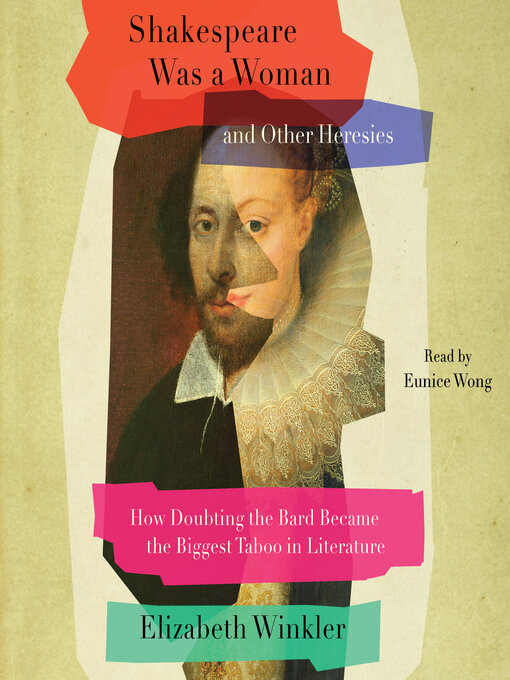- Featured Magazines
- Let's Get Cooking!
- News, Politics, and Business
- Lifestyle Magazines
- Popular Magazines
- All Magazines
- See all
-
Description
-
Creators
-
Details
-
Reviews
The theory that Shakespeare may not have written the works that bear his name is the most horrible, unspeakable subject in the history of English literature. Scholars admit that the Bard's biography is a "black hole," yet to publicly question the identity of the god of English literature is unacceptable, even (some say) "immoral."
In Shakespeare Was a Woman and Other Heresies, journalist and literary critic Elizabeth Winkler sets out to probe the origins of this literary taboo. Whisking you from London to Stratford-Upon-Avon to Washington, DC, she pulls back the curtain to show how the forces of nationalism and empire, religion and mythmaking, gender and class have shaped our admiration for Shakespeare across the centuries. As she considers the writers and thinkers—from Walt Whitman to Sigmund Freud to Supreme Court justices—who have grappled with the riddle of the plays' origins, she explores who may perhaps have been hiding behind his name. A forgotten woman? A disgraced aristocrat? A government spy? Hovering over the mystery are Shakespeare's plays themselves, with their love for mistaken identities, disguises, and things never quite being what they seem.
As she interviews scholars and skeptics, Winkler's interest turns to the larger problem of historical truth—and of how human imperfections (bias, blindness, subjectivity) shape our construction of the past. History is a story, and the story we find may depend on the story we're looking for.
"Lively" (The Washington Post), "fascinating" (Amanda Foreman), and "intrepid" (Stacy Schiff), Shakespeare Was a Woman and Other Heresies will forever change how you think of Shakespeare...and of how we as a society decide what's up for debate and what's just nonsense, just heresy.

- Elizabeth Winkler - Author
- Eunice Wong - Narrator
Awards:
OverDrive Listen audiobook
- ISBN: 9781797158723
- File size: 416990 KB
- Release date: May 9, 2023
- Duration: 14:28:43
MP3 audiobook
- ISBN: 9781797158723
- File size: 417058 KB
- Release date: May 9, 2023
- Duration: 14:37:35
- Number of parts: 17

Loading
Formats
OverDrive Listen audiobook
MP3 audiobook
Languages
English
